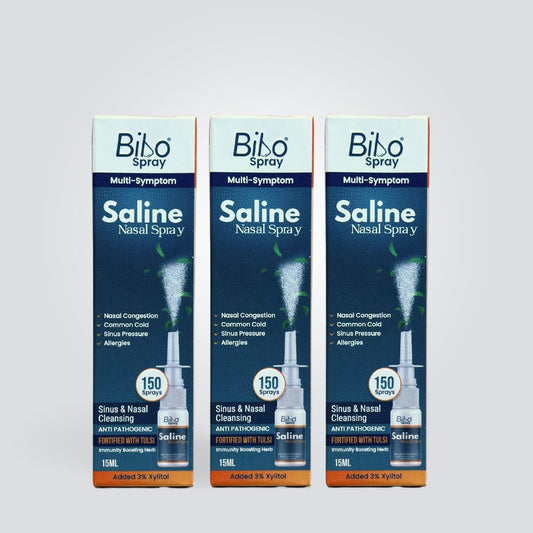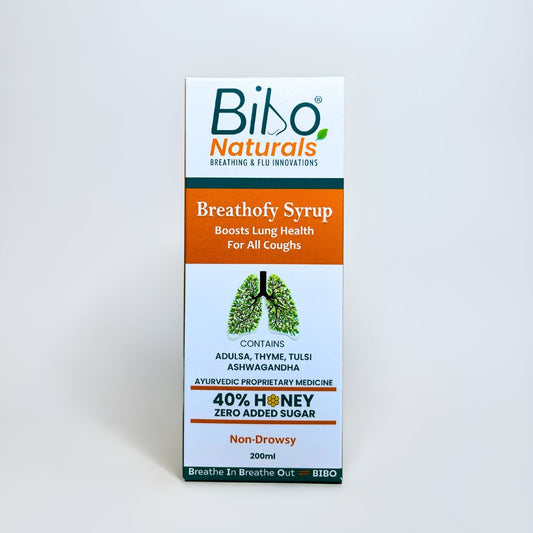
Blog written by: Dhrithi Bhat
A progressive lung ailment known as chronic obstructive pulmonary disease (COPD) is characterized by decreased airflow and breathing difficulties. Millions of individuals around the world are affected by this crippling illness, and its incidence is rising. Although there is no cure for this ailment, lifestyle adjustments can greatly enhance the quality of life for those who have it. Here, we'll talk about the three crucial lifestyle adjustments for people with COPD: consuming a nutritious diet, exercising frequently, and quitting smoking.
Diet for COPD Patients:
Maintaining a nutritious diet is very crucial for COPD patients as it provides the necessary energy and nutrients to support overall health and lung function. Here are some dietary guidelines for COPD patients:
- Eat a Balanced Diet: Try to eat a variety of foods from several dietary groups, such as fruits, vegetables, whole grains, lean proteins, and low-fat dairy items. This well-rounded strategy guarantees an adequate intake of necessary nutrients.
- Focus on Antioxidant-Rich Foods: Antioxidants aid in defending the lungs from harmful free radicals. Include foods high in antioxidants in your diet on a daily basis, such as berries, citrus fruits, leafy greens, and cruciferous vegetables
- Opt for Omega-3 Fatty Acids: Anti-inflammatory effects of omega-3 fatty acids may help lessen the symptoms of COPD. Include foods like walnuts, flaxseeds, chia seeds, and fatty fish (salmon, mackerel) in your meals.
- Maintain Adequate Protein Intake: Muscle strength, which is frequently weakened in COPD patients, depends on protein. To achieve your protein requirements, include lean meats, poultry, fish, eggs, beans, and dairy products in your diet.
- Stay Hydrated: To thin mucus and avoid dehydration, it's imperative to drink enough water. Unless your doctor instructs differently, make sure to have enough water and other liquids throughout the day.
Exercise for COPD Patients:
Regular exercise is beneficial for COPD patients as it helps improve lung function, increases exercise tolerance, and enhances overall fitness levels. Before starting an exercise program, consult your healthcare provider to determine the appropriate level of exercise for your specific condition. They can guide you on exercises that are safe and suitable for you.
Here are some exercise recommendations for COPD patients:
- Focus on Aerobic Exercises: Aerobic exercises, such as walking, cycling, swimming, and low-impact aerobics, can help strengthen the respiratory muscles and improve cardiovascular fitness. Start with shorter durations and gradually increase intensity and duration as tolerated.
- Incorporate Strength Training: Strength training exercises, such as weightlifting or resistance band exercises, can help improve muscle strength and endurance. Engage in these exercises two to three times a week, targeting major muscle groups.
- Practice Breathing Exercises: COPD often leads to inefficient breathing patterns. Breathing exercises, such as pursed-lip breathing and diaphragmatic breathing, can help improve lung function, reduce breathlessness, and enhance overall respiratory control.
- Avoid Overexertion and Listen to Your Body: Pay attention to your body's signals and avoid overexertion. Pace yourself during exercise and take breaks as needed. If you experience any unusual symptoms or severe shortness of breath, stop exercising and seek medical attention.
Smoking Cessation:
Smoking cessation is the single most important lifestyle change for COPD patients. Quitting smoking can slow down the progression of the disease and improve symptoms. Here are some suggestions for giving up smoking:
- Seek Professional Help: Consult a healthcare provider for guidance on the most suitable smoking cessation methods for you. They can recommend nicotine replacement therapy, and medications, or refer you to support groups or counselling services.
- Build a Support Network: Share your decision to stop smoking with your friends, family, and other close people in your life. Surround yourself with supportive individuals who can provide encouragement and help you stay accountable.
- Identify Triggers and Find Alternatives: Identify situations or activities that trigger your urge to smoke. Develop strategies to cope with these triggers, such as replacing smoking with healthier habits like chewing sugar-free gum, going for a walk, or practicing deep breathing exercises.
- Stay Positive and Persistent: Quitting smoking is a challenging process, and setbacks may occur. Stay positive, focus on the benefits of quitting, and don't get discouraged by temporary lapses. Persistence is key to long-term success.
Conclusion
COPD is a chronic lung condition that requires lifelong management. By making significant lifestyle changes, such as adopting a healthy diet, engaging in regular exercise, and quitting smoking, COPD patients can enhance their quality of life, slow down disease progression, and reduce symptoms. Remember to consult your healthcare provider for personalized recommendations and support throughout your COPD journey.
References
- Global Initiative for Chronic Obstructive Lung Disease (GOLD). (2022). Global strategy for the diagnosis, management, and prevention of chronic obstructive pulmonary disease. Retrieved from https://goldcopd.org/
- Healthy Diet for COPD. (2021). American Lung Association. Retrieved from https://www.lung.org/lung-health-diseases/lung-disease-lookup/copd/living-with-copd/nutrition#:~:text=Eat%2020%20to%2030%20grams,%2C%20seeds%2C%20fruits%20and%20vegetables.&text=Eat%20a%20good%20source%20of,and%20dried%20beans%20or%20peas.
- Exercise and COPD. (2021). American Lung Association. Retrieved from https://www.lung.org/lung-health-diseases/lung-disease-lookup/copd/living-with-copd/physical-activity#:~:text=Walking%2C%20biking%20and%20swimming%20are,a%20few%20times%20a%20week.&text=Resistance%20training%20makes%20all%20your,ones%20that%20help%20you%20breathe.
- Smoking Cessation. (2021). American Lung Association. Retrieved from https://www.lung.org/quit-smoking




